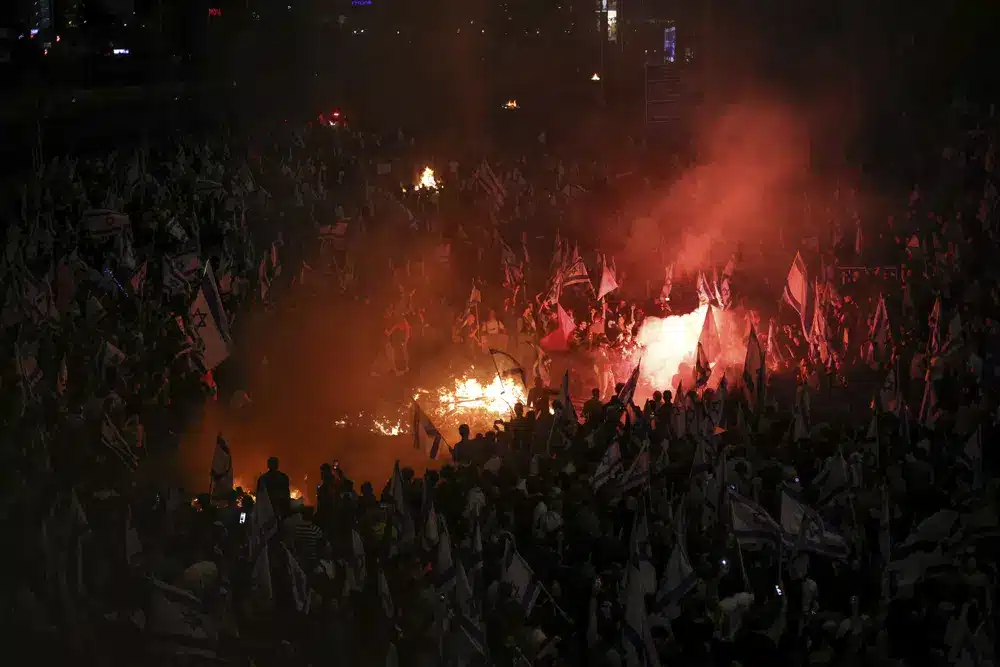The White House has urged Israeli leaders to find a compromise as soon as possible after Prime Minister Benjamin Netanyahu fired Defence Minister Yoav Gallant, which led to mass protests across Israel. Thousands of people took to the streets on Sunday in Tel Aviv and Jerusalem to protest against the dismissal, which came after Gallant broke ranks and urged the government to halt plans to overhaul the judicial system.
The overhaul package aims to tighten political control over judicial appointments, giving the executive greater freedom to name judges to the Supreme Court. The bill, along with others that would limit Supreme Court powers to rule against government policy, have led to concerns over Israel’s democracy. Asaf Zamir, Israel’s consul general in New York, resigned in response to Netanyahu’s “dangerous decision,” saying he wanted to join the fight for Israel’s future to ensure it remains a beacon of democracy and freedom in the world.
In the wake of the mass protests, tensions between Israel’s government and opposition parties continued to rise, with accusations of corruption and authoritarianism being levelled at Prime Minister Netanyahu.
The protests, which were some of the largest the country had seen in years, were met with a heavy-handed response from the police and security forces. The use of water cannon and other crowd control measures drew criticism from human rights groups and civil liberties advocates.
Despite the pressure, Netanyahu remained defiant in his support for the judicial reforms, arguing that they were necessary to ensure that the courts did not overstep their authority and interfere with the democratic process.
“The reforms we are proposing are essential for the future of Israel as a free and democratic society,” he said in a speech to the Knesset.
“We will not be deterred by the protests of a vocal minority who seek to undermine our government and our democracy. We will continue to stand firm and do what is necessary to protect the interests of our citizens and our nation.”
The controversy surrounding the judicial reforms also drew attention from the international community, with many countries expressing concern over the impact they could have on Israel’s democratic institutions.
The United States, one of Israel’s closest allies, issued a statement calling on the government to find a compromise with the opposition and ensure that any changes to the judicial system were made in a manner that respected the rule of law and democratic principles.
“The United States is deeply concerned by recent developments in Israel and urges all parties to find a peaceful and democratic solution to their differences,” the statement read.
“We remain committed to working with Israel and its leaders to promote democracy, human rights, and the rule of law.”
As the controversy continued to unfold, many Israelis were left wondering what the future held for their country and their democracy. With tensions high and protests continuing, it remained to be seen whether the government and opposition could find a way to work together and resolve their differences, or whether the situation would escalate further and lead to more unrest and political instability.
Image Credit: AP Photo/Oren Ziv



















